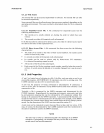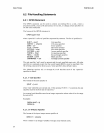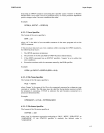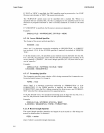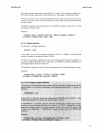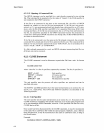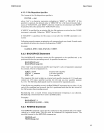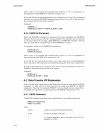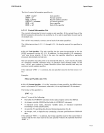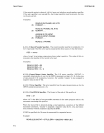
FORTRAN-80
Executing
an
OPEN
statement containing this specifier causes
'stname'
to
become
defined with a zero value
if
no
error
condition exists,
or
with a processor-dependent
positive integer value
if
an
error
condition does exist.
Example:
OPEN
(4,
IOSTAT = ERRFLG)
6.2.1.3
Error
Specifier
The
format
of
the
error
specifier
is
ERR =
stl
where 'st!'
is
the label
of
an
executable statement in the same
program
unit as the
OPEN
statement.
If
the processor discovers
an
error
condition while executing the
OPEN
statement,
the following steps occur:
1.
The
OPEN
operation terminates;
2.
The
position
of
the file specified by
OPEN
becomes indeterminate;
3.
If
the
OPEN
statement has an
IOSTAT
specifier,
'stname'
is
set
to
reflect the
error
condition;
4. Execution continues with the statement named by the
ERR
specifier.
Example:
OPEN
(4,
IOSTAT=
ERRFLG,ERR= 1010)
6.2.1.4
File
Name
Specifier
The
format
of
the file name specifier
is
FILE = {name
where
'fname'
is
the
name
of
the file
to
be connected, expressed as a character-type
constant
or
variable. The file
name
must be valid for the particular system in which
the
program
is
executing.
If
FILE
is
omitted, the unit becomes connected to a
processor-determined file.
Example:
OPEN(UNIT=3,
FILE=
'MVPROG.SRC')
6.2.1.5
File
Status
Specifier
The
format
of
the file status specifier
is
STATUS = stat
where
'stat'
is
a character expression evaluating
to
'OLD',
'NEW',
'SCRATCH',
or
'UNKNOWN'.
If
the STATUS specifier
is
omitted, the default value
is
'UNKNOWN'.
Input/Output
6-5









